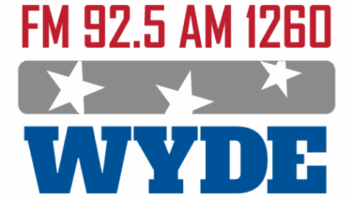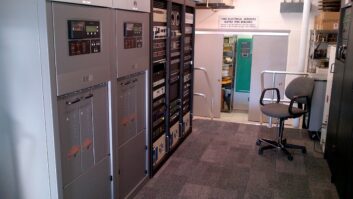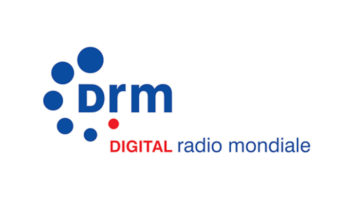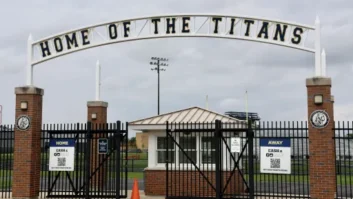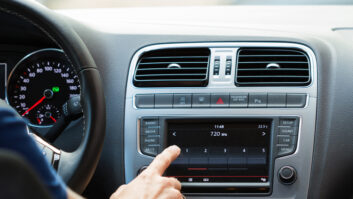The Hobby of Amateur Radio Is Pivotal to the Development of the Radio Broadcast Engineer
For many of us involved in broadcast engineering, the hobby of amateur radio has played a role in the development of who we are and what we do. I present here some of my personal experiences in the hobby as well as the relationship between broadcast engineering and amateur radio.
My interest in amateur radio can be traced back to when I was in the sixth grade. A friend in my class had a novice license and he was my first contact with anyone in the hobby. At that time, a novice license was good for one year and gave the operator the privilege of operating CW on a small portion of the 80-, 40- and 15-meter bands with the limitation of 75 watts DC input power with a crystal-controlled transmitter.
I wanted one of those novice licenses! To get a novice license you had to pass a five-words-per-minute code test and a fairly simple written test. I tried to learn the code for quite a while but it was slow going. I had no one that was interested in practicing code with me and I didn’t have a receiver capable of receiving the ham bands. My parents were not technically oriented and they didn’t know how to help me.
A few years later, my grandfather gave me a Heathkit HR-10B receiver kit. For the first time, I was able to listen to the amateur bands and get in some real code practice.
I could probably write an entire article on Heathkits and what they have meant to me and so many others. Building these kits provided experience in soldering and construction, taught some theory and gave the satisfaction of building quality equipment with one’s own hands.
I believe what the “Tool Man Taylor” said: “If you didn’t build it, it’s not really yours.”
Training ground
I was about 14 years old when I discovered the local amateur radio club. The club had a class to prepare for the novice test and I signed up for it. The class had the structured code practice I needed and it had a great teacher who taught radio theory.
This is one example where I can make a distinct connection between amateur radio and radio broadcasting. What I learned in that class, at age 14, opened the door to the whole world of RF theory. The principles that I learned serve me well to this day.
Amateur radio has been the initiation into the world of radio communications for many of us. We learned about electronic theory, construction techniques, troubleshooting, antennas, propagation and many other things. We learned from each other, from formal instruction, but most of all by the outstanding publications devoted to the hobby.
The American Radio Relay League has produced quality publications for radio amateurs for almost a century. As a radio enthusiast I am extremely grateful for the ARRL publication “The Radio Amateurs Handbook” (now called “The ARRL Handbook for Radio Communications”).
The handbook has been published every year since 1925. What makes it so special is the immense knowledge base that it provides. In one book we have electronic and radio theory, propagation theory, antenna theory; and it is all written in an easy-to-understand manner that is not intimidating to the newcomer.
Theory is just the beginning, though. The book contains practical construction techniques, projects to build, tables and more. We are fortunate to have such a publication. The handbook is widely regarded as one of the essential books for everyone involved in any radio discipline. I have learned a great deal from this book over the years and I often refer to it both for hobby and professional use. I know of no other hobby that comes close to having anything like “The Radio Amateurs Handbook.”
Amateur radio has been a vast training ground for many of us involved in radio broadcasting. But what about the future? Things have changed over the years. Technically inclined young people are less inclined to get the radio bug because of the many other endeavors they can pursue. Those youngsters who do get into amateur radio are less likely to delve into theory and construction projects for a number of reasons.
Pressing forward
In recent times, amateur radio has suffered a number of potential setbacks. Broadband over power lines, or BPL, has the potential to severely limit the ability of many radio amateurs to operate a station. The FCC has inexplicably reasoned that it is okay for power lines to radiate interfering signals with little limitations.
Computers and the Internet now provide a diversion for many of the technically inclined who may have found amateur radio to be an exciting hobby in the past. The Internet provides easy and instant communication throughout the world, a capability once unique to the radio amateur.
On the positive side, amateur radio is pressing forward with new technologies that were mere science fiction a few decades ago. I recently copied meteor scatter communication on the six-meter band using only a halo antenna with the aid of a computer equipped with a weak-signal detection program. These emerging technologies are creating a fresh new landscape for those interested in leading-edge communication.
Even though the world is changing, there always will be some young people who get interested in the hobby and become licensed amateur radio operators; and some of them will learn radio theory and gain valuable experience. The broadcast engineering profession will continue to grow and to change, as will amateur radio. Many of our future radio engineers may get their start in the ranks of amateur radio, as did many of us.
Now it’s time to finish my personal story. I never did get that novice license. I did, however, get my technician license, which was one step higher than the novice level – or was it? At that time, the FCC, in its unique wisdom, did not allow the technicians to operate on the novice frequencies. The technician license only had privileges on 50 MHz and up.
I spent a lot of time learning about and building antennas, frequency multipliers, power supplies, receiving converters and such, which gave me a great deal of practical knowledge. I always have felt a bit cheated by not being able to operate on the HF bands in those years, but I probably learned quite a bit more by having the technician class license instead of the novice license.
Amateur radio has been a big part of my life, not just from a hobby standpoint, but also as a stepping-stone to what I do now. For most amateurs it is just a hobby, and there is nothing wrong with that. It is from the vast pool of hobbyists that some emerge professionals. I once knew a mechanic who, after becoming an amateur radio operator, joined the ranks of television broadcast engineers.
Amateur radio also provides a public service for times when emergency communications must be set up. In the aftermath of last year’s Florida hurricanes, amateur radio operators provided emergency communications, some of which was conducted using CW because that was the only mode that could get through at times.
Amateur radio has earned the right to continue to exist and it is a resource that should be respected, cherished and protected.
